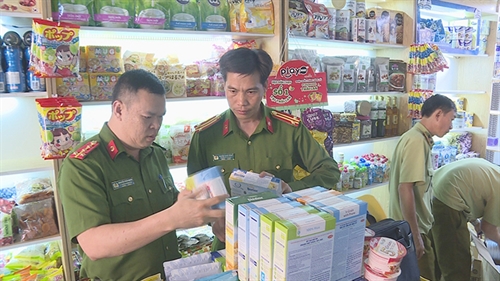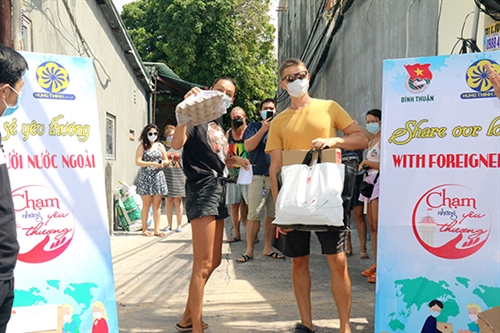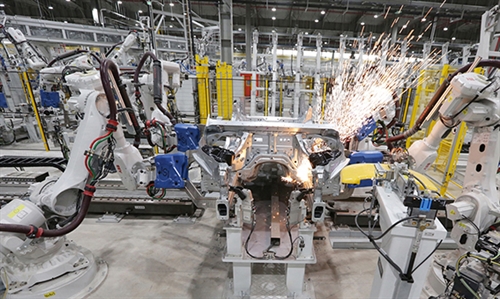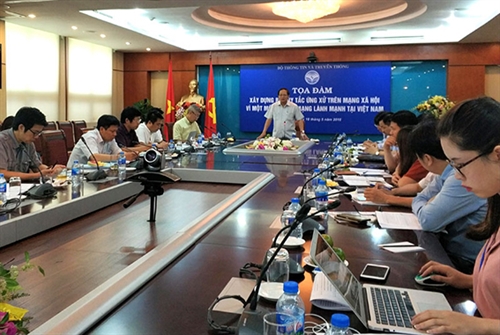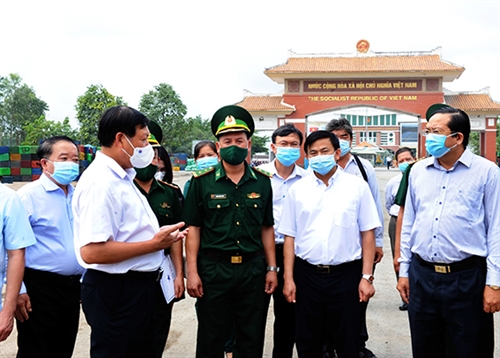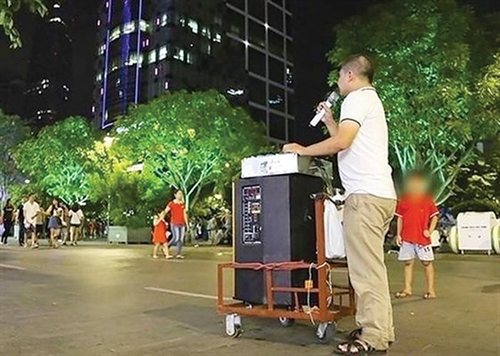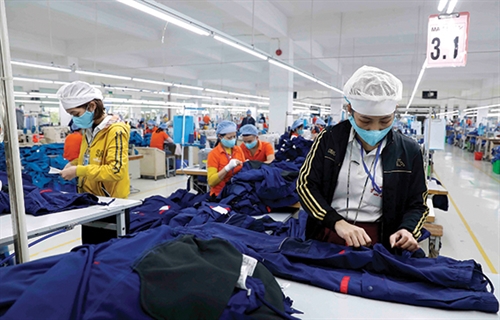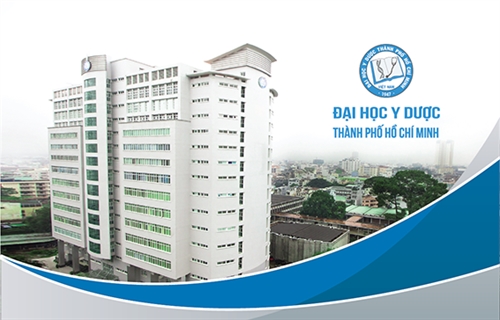The number of criminal cases showing signs of money laundering in Vietnam is on a rapid increase, reaching over 11,000 cases per year on average. In some cases, the appropriated money amount mounts to trillions of Vietnam dong. Every day, the Anti-Money Laundering Department of the State Bank of Vietnam receives, analyzes and processes thousands of reports on suspicious transactions.
Such information was released by Cao Anh Duc, Deputy Director of the Department of Public Prosecutions and Supervision over the Investigation of National Security Crimes under the Supreme People’s Procuracy, at the conference on anti-money laundering crimes held in Hanoi on December 21.
Figures from the State Bank show that from 2013 to September 2020, the Anti-Money Laundering Department had analyzed and processed over 10,000 reports on suspicious transactions, and transferred 857 cases concerning 5,614 transactions to investigation, inspection, tax and customs authorities.
As per statistics of the Supreme People’s Procuracy, from 2013 to 2019, the proceeding-conducting bodies prosecuted nearly 10,000 cases of corruption-, economic management-, position abuse-related crimes which all showed signs of money laundering.
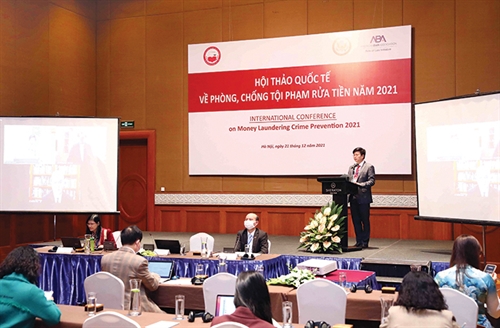 |
| An international conference on money laundering crime prevention in Hanoi on Dec. 21__Photo: Pham Kien/VNA |
Identifying money laundering tricks
According to experts, in the past time, money laundering offenders often applied such methods as buying real estate and stocks, depositing money to savings accounts at banks in the name of their relatives, or transferring money abroad to make investment in others’ capacity. Money launderers also set up shell companies to take advantage of lawful activities of these companies to “process” their “dirty” money into “clean” money. Another method was to hire border residents to carry money and property across the border in excess of law-prescribed thresholds without making customs declaration or with making false declarations. Cash, gold, and gemstones might be concealed on human bodies, checked baggage or hand luggage or hidden in vehicles or cargo containers in order to evade inspection and detection by customs authorities.
However, it has never been easy to detect money laundering cases as offenders often apply several tricks at the same time. The case recently detected by the Hanoi Public Security Department can be cited as a clear illustration. On September 25, the Department’s Investigation Police Agency issued a decision on prosecution of a criminal case against six defendants for the crime of “illegally transporting goods and currencies across the border” under Article 189 of the Penal Code. The initial investigation result showed that Nguyen Van Thang, head of the gang, and his accomplices established several companies and registered for doing business in the form of temporary import for re-export and then abused these activities for illegally transporting across the border goods and currency worth nearly VND 30 trillion (USD 1.3 billion).
Today, against the backdrop of the ongoing Fourth Industrial Revolution, many new digital technology products and services and online payment instruments have come to existence, giving rise to new forms of money laundering.
In a talk with reporters from enternews.vn, Assoc. Prof. Dr. Dinh Trong Thinh, senior financial expert, pointed out several non-traditional money laundering methods, e.g., money laundering via online banking services, e-commerce platforms, virtual currency markets, or online gambling activities. He went on to explain that as these activities are carried out in the cyber environment and sometimes do not require the certification of identity of transaction parties, they may be abused for money laundering purposes. It is not to mention the fact that some operations, for example transactions involving virtual assets and digital currencies, can be effected without any intermediary banking institutions or, in other words, are not subject to the control by any state authorities. Therefore the concern about money laundering and terrorism financing with virtual currencies is huge and cannot be disregarded. As per online gambling, offenders often take advantage of social media to make peer-to-peer lending or online investment on different networks, thus creating opportunities to convert illegal money into legal money.
According to Dr. Thinh, online money laundering methods always have some things in common. First, money launderers somehow rally and locate illegal incomes at a specific place, then turn such dirty money into clean money through specific investment or commercial activities, and finally, bring the cleaned money back to the economy.
In 2008, a trillion-dong gambling case was detected and the country was shocked by its size. Nguyen Van Duong, Chairman of the Members’ Council of Hi-Tech Security Investment and Development Company Limited - CNC, and Phan Sao Nam, Chairman of the Board of Directors cum Director of VTC Online Company, took advantage of high technology, setting up a network of 25 “tier-1 agents” and nearly 6,000 “tier-2 agents” with nearly 43 million online gambling accounts, earning an illicit profit amount of over VND 9,800 billion (USD 426 million). Both offenders were later prosecuted for the two crimes of “organizing gambling” and “laundering money”.
Legal solutions
In response to the rise in money laundering crimes in Vietnam, Prime Minister Pham Minh Chinh has directed the State Bank of Vietnam to study the revision of the 2012 Law on Prevention and Control of Money Laundering.
Recently, the State Bank revealed that it is now working on a draft anti-money laundering law, focusing on e-wallet services, virtual currency, peer-to-peer (P2P) lending, and pawn services. According to the Central Bank, virtual currencies like Bitcoin are currently traded on virtual currency exchanges as a type of “securities” and have attracted millions of investors around the world, including Vietnam. “However, Vietnam’s legal system neither regulates the issuance, trading and exchange of virtual currencies and virtual assets nor officially assigns a state authority to manage the transactions involving virtual currencies and virtual assets. As a result, these operations, especially the use of virtual currencies to raise capital under a multi-level scheme, are becoming more and more complicated, exerting negative impacts on the stability of the financial market as well as social order and safety, and posing great risks to the stakeholders,” the State Bank assessed.
As suggested by Assoc. Prof. Dr. Truong Ho Hai, Director of the Institute of State and Law under the Ho Chi Minh National Academy of Politics, in the coming time, Vietnam’s legal corridor on money laundering prevention and control needs to be further improved along the line of promulgating and improving the regulations on management of activities in the cyberspace, artificial intelligence and virtual currencies, and improving relevant laws such as the Law on Tax Administration and the Law on Real Estate Business. At the same time, it is necessary to promote cashless transactions; verify and handle assets and incomes of unclear origin,” Dr. Hai emphasized.-
